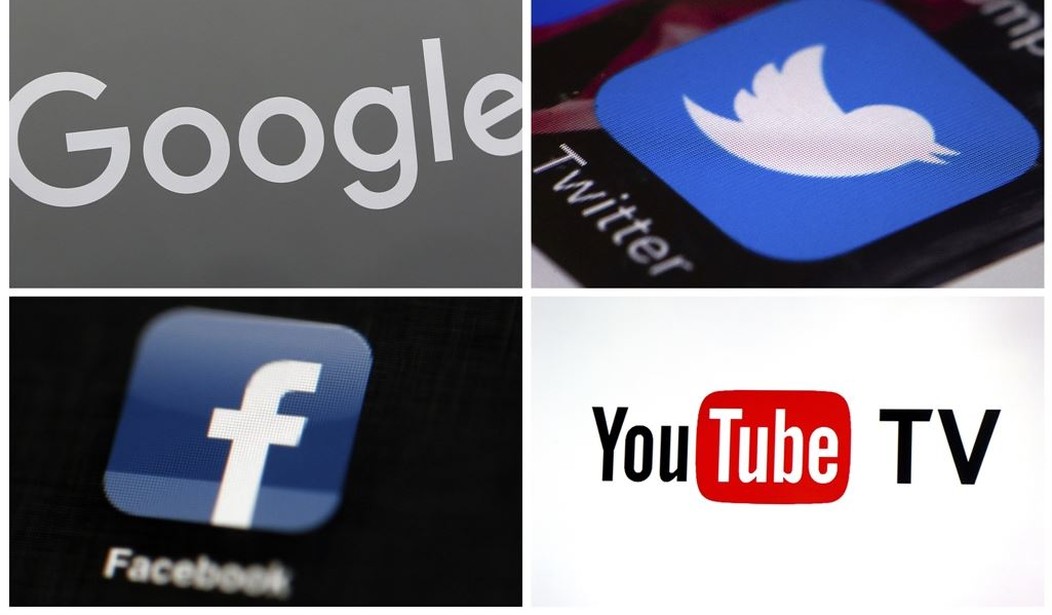We don’t think we have to tell you that social media censorship is a significant problem. It can be fairly said that if it wasn’t for social media censorship of the Hunter Biden laptop story, the turnip Joe Biden wouldn’t be president right now.
The argument many make is ‘private companies can do what they want.’ There are two problems with that approach:
The first problem is well … how ‘private’ is that decision when government regulators—people who can effectively destroy your business—come knocking demanding that they censor this person or that person? That was the subject of Murthy v. Missouri, that was recently kicked for standing—meaning that the Supreme Court said these people can’t sue for injunctive relief, even if they were harmed.
The second problem is that there is a danger that effectively we might close off our national discourse based on this control. For instance, imagine if you go to your office supply store and they say ‘we will not sell you ink and paper for your printer unless you promise not to criticize the Republican party with anything you write.’ Imagine further that all of the companies that sell ink and paper make this demand. We think in modern American society, what Twitter/X, Facebook, and other sites offer is the Internet age equivalent of ink and paper, and until recently, they had similar restrictions as those in my hypothetical. You couldn’t report on Hunter Biden’s laptop during the election season in 2020. You couldn’t ‘misgender’ and thus couldn’t discuss the transgender movement honestly.
This is not only a problem, but it is one we normally can address under the rubric of antitrust law. That’s where one looks when a market is sewn up by one company or a group of them acting in concert.
Thus, a number of states have tried to address Internet censorship, among them Texas and Florida, and these cases have reached the Supreme Court. Yes, it’s not as sexy as Trump’s immunity but it might end up being more important in the long term for the Republic, because the health of the Republic depends on freedom of expression and a robust marketplace of ideas.
Recommended
The case is Moody v. NetChoice (2024), and here’s Professor Turley talking about it:
...We have our second opinion. It is Moody. chrome-extension://efaidnbmnnnibpcajpcglclefindmkaj/https://t.co/wWUY0OgBd9
— Jonathan Turley (@JonathanTurley) July 1, 2024
His link looks like a mess, but if you click the part that looks clickable (blue and underlined on this author’s computer), it should take you to the opinion.
...." The judgments are vacated, and the cases are remanded, because neither the Eleventh Circuit nor the Fifth Circuit conducted a proper analysis of the facial First Amendment challenges to Florida and Texas laws regulating large internet platforms. "
— Jonathan Turley (@JonathanTurley) July 1, 2024
That word ‘facial’ is crucial. This is the exact same issue that came up in U.S. v. Rahimi, which dealt with whether or not people under domestic restraining orders where the person was found by the court to be violent can lawfully be prohibited from bearing arms while the restraining order is in effect. What doomed both cases is that we were dealing with a facial challenge to the law. In our piece on Rahimi, we quoted Kavanaugh explaining what that meant:
Mr. Rahimi pursues the ‘most difficult challenge to mount successfully’: a facial challenge. He contends that 18 U. S. C. §922(g)(8) violates the Second Amendment ‘in all its applications.’ … To prevail, he must show ‘no set of circumstances’ exists in which that law can be applied without violating the Second Amendment.
In that case, Mr. Rahimi was kind of the poster boy as a guy who shouldn’t be allowed to legally bear arms—or at least a hard case for Second Amendment absolutists. According to the Court, after his domestic violence incident where he literally shot at someone, he went on a crime spree using guns he was no longer supposed to have. Here, NetChoice might a more sympathetic situation, but the problem is because they mounted a facial challenge, they had to show there was no situation where the law was constitutional and that’s almost impossible.
That being said, the Supreme Court showed very strong sympathy to the notion that Twitter/X or Facebook might argue that they are being expressive through who they allow to talk. This author thinks that is stretching the concept of expression at the expense of the actual marketplace of ideas, but we don’t get a vote on the Supreme Court. So, while NetChoice lost today, we think in the long term they are likely to win at least for particular platforms. That’s not the outcome we want, but it is the one we predict, and thus social media platforms will be able to stifle people they disagree with.
The good news is, at least for now, one platform is not playing along. Elon Musk’s X might not be perfect—even the new name kind of stinks—but it beats the heck out of Twitter. GayPatriot was banned for years under Twitter. He is back on X. Alex Jones was banned from Twitter. He is back on X. Heck, even Donald Trump was banned from Twitter, but he has had his account restored on X—even if he is still primarily using TruthSocial. We might not like calling it X as much as we liked calling it Twitter, but we like the level of freedom of expression X offers. It’s not perfect but it’s definitely an improvement.
We will also note that there is a growing contradiction in the law. Increasingly, the Courts are saying that it is illegal for a public official to block a person on Twitter/X and other social media platforms, at least if that public official uses those platforms for official business. So, for instance, Alexandria Ocasio-Cortez definitely can’t block people using her @RepAOC Twitter/X account just because they called someone the n-word. You have a right to say the n-word under the First Amendment. But at the same time, the social media platform can suspend a person for saying the n-word. So, the politician can’t block you, but they can use a social media platform that will suspend your account completely? That makes little sense.
On to reactions, including finishing Turley’s quick analysis:
...From opinion "The next order of business is to decide which of the laws’ applications violate the First Amendment, and to measure them against the rest. For the content-moderation provisions, that means asking, as to every covered platform or function, whether there is an…
— Jonathan Turley (@JonathanTurley) July 1, 2024
The cut off text:
For the content-moderation provisions, that means asking, as to every covered platform or function, whether there is an intrusion on protected editorial discretion.
...Another unanimous decision. Not exactly fulfilling the narrative of critics of a hopelessly divided ideological court in many of these cases. They want more findings to feel out the first amendment claims.
— Jonathan Turley (@JonathanTurley) July 1, 2024
1. Content moderation is protected by the First Amendment.
— Sergio Vengeance 🇺🇲🎮🤘 (@SergioVengeance) July 1, 2024
2. The Fifth Circuit is WRONG, again.
The first amendment wins.
NetChoice v. Moody /Paxton pic.twitter.com/4g1GTT9s2X
Some excellent restatements of First Amendment first principles in Justice Kagan’s Supreme Court decision in Moody v. NetChoice today:
— Adam Thierer (@AdamThierer) July 1, 2024
👉 “we have repeatedly held that laws curtailing their editorial choices must meet the First Amendment’s requirements. The principle does not…
The cut off text:
The principle does not change because the curated compilation has gone from the physical to the virtual world.’
‘[First Amendment] principles have served the Nation well over many years, even as one communications method has given way to another.’
‘The government may not, in supposed pursuit of better expressive balance, alter a private speaker’s own editorial choices about the mix of speech it wants to convey.’
‘a State may not interfere with private actors’ speech to advance its own vision of ideological balance.’
‘In a better world, there would be fewer inequities in speech opportunities; and the government can take many steps to bring that world closer. But it cannot prohibit speech to improve or better balance the speech market. On the spectrum of dangers to free expression, there are few greater than allowing the government to change the speech of private actors in order to achieve its own conception of speech nirvana.’
We are cutting out a lot of emojis from his post that we read as him loving every one of those quotes.
And the ‘Moody’ of the caption speaks:
🚨BREAKING NEWS: SCOTUS Unanimously Sides with Florida in Social Media Case🚨
— AG Ashley Moody (@AGAshleyMoody) July 1, 2024
We are pleased that SCOTUS agreed with Florida and rejected the lower court’s flawed reasoning—invalidating our social media law. While there are aspects of the decision we disagree with, we look…
The cut off text:
While there are aspects of the decision we disagree with, we look forward to continuing to defend state law.
She’s definitely right to say they won today. But this law is still in trouble in multiple cases. The social media platforms it is aimed at are not going to be limited by this statute.
Justice Kagan's majority opinion in Moody v NetChoice, on quick read, will protect against excessive government speech regulation of internet platforms' editorial decisions made through their algorithms. Consider this extensive list of editorial activity by internet platforms: https://t.co/53BsnrABmI pic.twitter.com/Ns0bA32ozr
— Anupam Chander (@AnupamChander) July 1, 2024
Look, we’re not saying we support all those forms of expression so much as we don’t support anyone else telling people what they can and can’t say. Furthermore, this kind of regulation typically just drives these viewpoints underground, rather than expose it to the sunlight of truth. We think our views can win in a fair fight. When someone says they don't believe that, we have to wonder what it says about their views?
We will end this with one of our favorite quotes from John F. Kennedy:
We welcome the views of others. We seek a free flow of information across national boundaries and oceans, across iron curtains and stone walls. We are not afraid to entrust the American people with unpleasant facts, foreign ideas, alien philosophies, and competitive values. For a nation that is afraid to let its people judge the truth and falsehood in an open market is a nation that is afraid of its people.
Our joke is that the Democratic party still agrees with this sentiment. What has changed is that they are proud to admit they are afraid of the American people. Once you get that, their position on censorship and gun control becomes much easier to understand.

























Join the conversation as a VIP Member